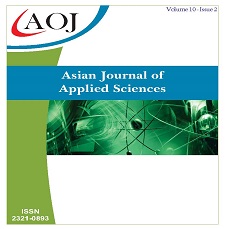Evaluation of the Implementation of 2013 National Curriculum in Madrasas through the Context, Input, Process, Product Model at the Ministry of Religion of South Sulawesi Province for Academic Year 2019/2020
DOI:
https://doi.org/10.24203/ajas.v10i2.6897Keywords:
implementation evaluation, 2013 curriculum, context modelAbstract
This study aims to obtain a comprehensive picture of the evaluation of the implementation of the 2013 national curriculum in madrasah through the context, input, process, and product model of South Sulawesi's province for the 2019/2020 academic year. By using the context, information, process, and product models developed. This study specifically aims to: (1) find out how the 2013 curriculum is implemented based on its context, (2) know the implementation of the 2013 curriculum based on its input (input), (3) understanding the performance of the 2013 curriculum based on its implementation (process), and (4) knowing the level of achievement (product) of the 2013 curriculum implementation. However, in this article, only the first objective is presented. This study also wanted to know the advantages and disadvantages of the 2013 curriculum and its relevance to the present and future situation. Through a focus group discussion using the questionnaire method, observation sheets, interview guidelines, and documentation studies, the conclusion is that the implementation of the 2013 curriculum has been running according to the context. All supporting factors are ready before the 2013 curriculum is implemented in madrasas throughout the cell. This study also found that the 2013 curriculum has certain advantages, especially its emphasis on the aspect of character building of students so that the 2013 curriculum is still worth maintaining because it is still relevant today and in the next few years while correcting some of the weaknesses that accompany the implementation of the 2013 curriculum, especially limitations. Educators (teachers) both in number and in quality.
References
Idi A. Pengembangan Kurikulum : Teori & Praktik. 1st Ed. Jakarta: Rajawali Pers; 2014.
Rusnaeni E. Pelaksanaan Kurikulum 2013 Mata Pelajaran PPKn di SMAN 4 Makassar [Internet] [diploma]. FIS; 2018 [cited 2021 Jun 14]. Available from: http://eprints.unm.ac.id/9980/
Kementerian Pendidikan dan Kebudayaan Indonesia. Pedoman Pemberian Bantuan Implementasi Kurikulum 2013 [Internet]. 2013 [cited 2021 Apr 7]. Available from: https://dokumen.tech/document/pedoman-pemberian-bantuan-implementasi-kurikulum-2013.html
Ansyar M. Kurikulum : hakikat, fondasi, desain dan pengembangan. 1st Ed. Jakarta: Prenadamedia Group; 2015.
Haling A. Belajar dan Pembelajaran. Makassar: Badan Penerbit UNM; 2007.
Sukmadinata NS. Pengembangan kurikulum : teori dan praktek. Bandung: Remaja Rosdakarya; 2006.
Lemlech JK. Curriculum and Instructional Methods for the Elementary and Middle School. 7th Ed. University of Southern California: Pearson; 2010.
Dahlan A. Definisi Masalah dan Jenis-Jenis Masalah Dalam Penelitian [Internet]. Eureka Pendidikan. 2015 [cited 2021 Apr 8]. Available from: https://eurekapendidikan.com/definisi-masalah-dan-jenis-jenis-dalam-penelitian
Sanjaya W. Kurikulum dan Pembelajaran: Teori dan Praktik Pengembangan Kurikulum Tingkat Satuan Pendidikan (KTSP). Jakarta: Kencana; 2008.
Okpokwasili NP. TYLER’S MODEL FOR CURRICULUM DESIGN IN SOCIAL STUDIES. Rivers State University of Science and Technology; 2003.
Tai J, Ajjawi R, Boud D, Dawson P, Panadero E. Developing evaluative judgement: enabling students to make decisions about the quality of work. High Educ. 2018 Sep;76(3):467–81.
Vishnupriyan M. Curriculum Evaluation: Using the Context, Input, Process and Product (CIPP) Model for Decision Making. Indian Journal of Continuing Nursing Education. 2017 Dec;18(2):12–8.
Sukardi. Metodologi Penelitian Pendidikan Kompetensi dan Praktiknya. Yogyakarta: Bumi Aksara; 2003.
Budiani S, Sudarmin S, Syamwil R. Evaluasi Implementasi Kurikulum 2013 di Sekolah Pelaksana Mandiri. 1. 2017 Aug 3;6(1):45–57.
Anshori FR. PROGRAM STUDI PENDIDIKAN EKONOMI JURUSAN PENDIDIKAN ILMU PENGETAHUAN SOSIAL FAKULTAS TARBIYAH UNIVERSITAS ISLAM NEGERI MAULANA MALIK IBRAHIM MALANG Januari, 2016. [Malang]: UIN Maulana Malik Ibrahim; 2016.
Aqdwirida R. IMPEMENTASI KURIKULUM 2013 DI SMA NEGERI 2 MAGELANG. Spektrum Analisis Kebijakan Pendidikan. 2016 Jun 24;5(1):34–48.
Hasan H. Evaluasi Kurikulum. Bandung: Rosdakarya; 2008.
Wulandari S. PENERAPAN PENILAIAN HARIAN PEMBELAJARAN FIKIH DALAM PELAKSANAAN KURIKULUM 2013 DI MADRASAH TSANAWIYAH AL MUTTAQIN PEKANBARU [Internet]. UIN Suska Riau. 2018 [cited 2021 Jun 14]. Available from: http://repository.uin-suska.ac.id/12874/
Faris FA. KURIKULUM 2013 DALAM PERSPEKTIF FILSAFAT PENDIDIKAN PROGRESSIVISME. Jurnal Filsafat. 2016 Aug 16;25(2):316–38.
Uran LL. Evaluasi implementasi KTSP dan Kurikulum 2013 pada SMK se-Kabupaten Belu, Nusa Tenggara Timur. Jurnal Penelitian dan Evaluasi Pendidikan. 2018 Jun 26;22(1):1–11.
Junaidi A, Subagyo S. KESIAPAN SARANA DAN PRASARANA DALAM MENGIMPLEMENTASI KURIKULUM 2013 SEKOLAH MENENGAH KEJURUAN (SMK) NEGERI PROGRAM STUDI TEKNIK OTOMOTIF JURUSAN TEKNIK KENDARAAN RINGAN (TKR) SEKABUPATEN LOMBOK TIMUR TAHUN AJARAN 2013/2014. TAMAN VOKASI. 2017 Mar 15;2.
Andesmi Y, Oktaviani ST. TINJAUAN KETERSEDIAAN SARANA DAN PRASARANA KURIKULUM 2013 DI SMK N 1 SUMBAR PADA WORKSHOP KAYU. CIVED (Journal of Civil Engineering and Vocational Education) [Internet]. 2019 Sep 15 [cited 2021 Jun 14];6(3). Available from: http://ejournal.unp.ac.id/index.php/cived/article/view/106234
Downloads
Published
Issue
Section
License
Copyright (c) 2022 Rappe, Husain Syam, Hamsu Abdul Gani

This work is licensed under a Creative Commons Attribution-NonCommercial 4.0 International License.
Copyright © The Author(s). This article is published under the Creative Commons Attribution License (CC BY 4.0), which permits unrestricted use, distribution, and reproduction in any medium, provided the original work is properly cited.


